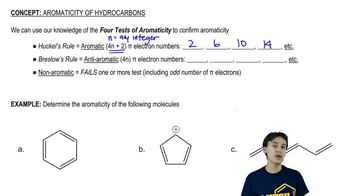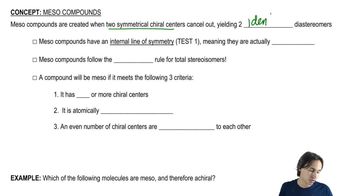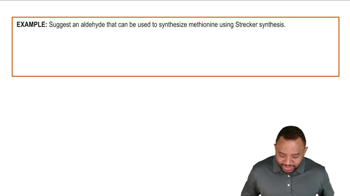For each of the following alkynes, draw the products obtained from (1) the acid-catalyzed addition of water (mercuric ion is added for part a) and from (2) hydroboration–oxidation:
a. 1-butyne

 Verified step by step guidance
Verified step by step guidance Verified video answer for a similar problem:
Verified video answer for a similar problem:



 2:43m
2:43mMaster Anti-Markovnikov addition of alcohols to terminal alkynes yields aldehydes with a bite sized video explanation from Johnny
Start learning